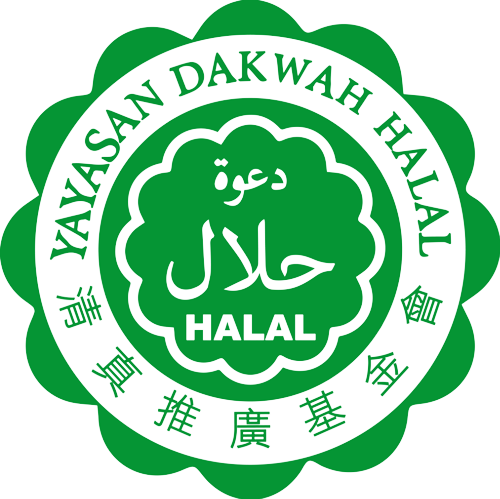印尼有將近2.6億人口,食品飲料市場商機無窮,讓許多欲進入印尼食品飲料業者趨之若騖。但當地政府進口法規限制與需通過哪些食品安全認證還是一知半解,商研院為使台灣業者在進入市場前有初步了解與事前的準備,避免業者找到合作的通路代理商後,才發現牴觸到當地法令而錯失商機。
首先,BPOM為Badan Pengawas Obat dan Makanan的縮寫名稱,所有進口的商品皆需經由印尼食品藥物管理局(National Agency of Drug and Food Control)申請商品的BPOM認證。一般而言,進口商取得外國食品註冊號(ML)才能在市場銷售,申請大約需要二、三個月時間,有效期為五年。
對於第一次進入市場且目前並無計畫在當地設立分公司的台灣業者,可先透過當地具有豐富經驗的進口商協助申請BPOM認證。所需提供給進口商的申請相關文件:
一、出口國製造商委任進口商的正式文件。
二、產地證明及原產國政府之衛生或核准出口證書。
三、由生產國相關食品檢驗機構發出之產品分析報告(分析方法與程序可能會被當地檢驗局做為備查)。
四、印尼文標示詳細的原材料、添加物與包裝材料資訊。
五、公司執照影本與印尼當地商標註冊證(印尼商標註冊由印尼經濟部智慧財產局,Directorate General of Intellectual Property的法務暨人部Ministry of Justice and Human Rights, MOJ核發,商標申請通常需要花費一年時間,每10年需換發一次)。
六、品牌授權登記證明。
七、從原物料到成品的製程說明。
八、原產地的品管流程等,但申請還是需依當地相關單位現行規定辦理。
在完成所需認證申請後,所有食品外包裝需要使用印尼文標示,字母及數字字體分別為Roman與Arabic。包裝上需要有產品名稱、商品的淨重、製造商/進口商的地址與登記號碼、詳列食品成份/添加物、有效日期、製造日期/生產批號等。除BPOM外,產品持有國際標準ISO22000的認證也是讓印尼當地買主對供應商食品供應鏈的管控能更加信賴與認同。
印尼有近九成穆斯林人口,自2012年7月起印尼政府開始針對加工行業(食品、藥品、化妝品)公司,屠宰場、飯店、餐飲、廚房必須通過清真認證(MUI Halal)的要求,以確保食品原料是在較高的清潔和衛生標準下加工、生產和包裝。
Indonesia has a population of nearly 260 million, and the food and beverage market has endless business opportunities, which has attracted many people who want to enter the Indonesian food and beverage industry. However, the local government’s import regulations and restrictions and what food safety certifications need to be passed are still poorly understood. In order to enable Taiwanese manufacturers to have a preliminary understanding and preparation before entering the market, to avoid the industry finding a cooperative channel agent, only to find out Lost business opportunities due to local ordinances.
First of all, BPOM is the abbreviated name of Badan Pengawas Obat dan Makanan. All imported goods must be certified by the Indonesian Food and Drug Administration (National Agency of Drug and Food Control). Generally speaking, importers need to obtain a foreign food registration number (ML) before they can be sold in the market. The application takes about two to three months, and the validity period is five years.
For Taiwanese companies who enter the market for the first time and have no plans to set up a local branch, they can apply for BPOM certification through a local experienced importer first. Application-related documents required to be provided to the importer:
1. The official document of the manufacturer of the exporting country appointing the importer.
2. The certificate of origin and the health or approved export certificate of the government of the country of origin.
3. The product analysis report issued by the relevant food inspection agency in the producing country (analysis methods and procedures may be used by the local inspection bureau for reference).
4. Detailed information on raw materials, additives and packaging materials should be indicated in Indonesian.
5. A copy of the company license and the Indonesian local trademark registration certificate (Indonesia trademark registration is issued by the Intellectual Property Bureau of the Indonesian Ministry of Economic Affairs, Ministry of Justice and Human Rights, MOJ of Directorate General of Intellectual Property, and the trademark application usually takes one year. time, it needs to be renewed every 10 years).
6. Brand authorization registration certificate.
7. Process description from raw materials to finished products.
8. The quality control process of the origin, etc., but the application still needs to be handled in accordance with the current regulations of the relevant local units.
After completing the required certification application, all food packaging needs to be marked in Indonesian, with Roman and Arabic fonts for letters and numbers. The product name, the net weight of the product, the address and registration number of the manufacturer/importer, the food ingredients/additives, expiry date, manufacturing date/production batch number, etc. should be listed on the package. In addition to BPOM, the product holds the international standard ISO22000 certification, which also enables Indonesian local buyers to have more trust and recognition in the management and control of the supplier's food supply chain.
Indonesia has nearly 90% of the Muslim population. Since July 2012, the Indonesian government has begun to target processing industry (food, medicine, cosmetics) companies, slaughterhouses, restaurants, catering, and kitchens must pass the halal certification (MUI Halal) requirements to ensure that Food ingredients are processed, produced and packaged under high cleanliness and hygiene standards.

